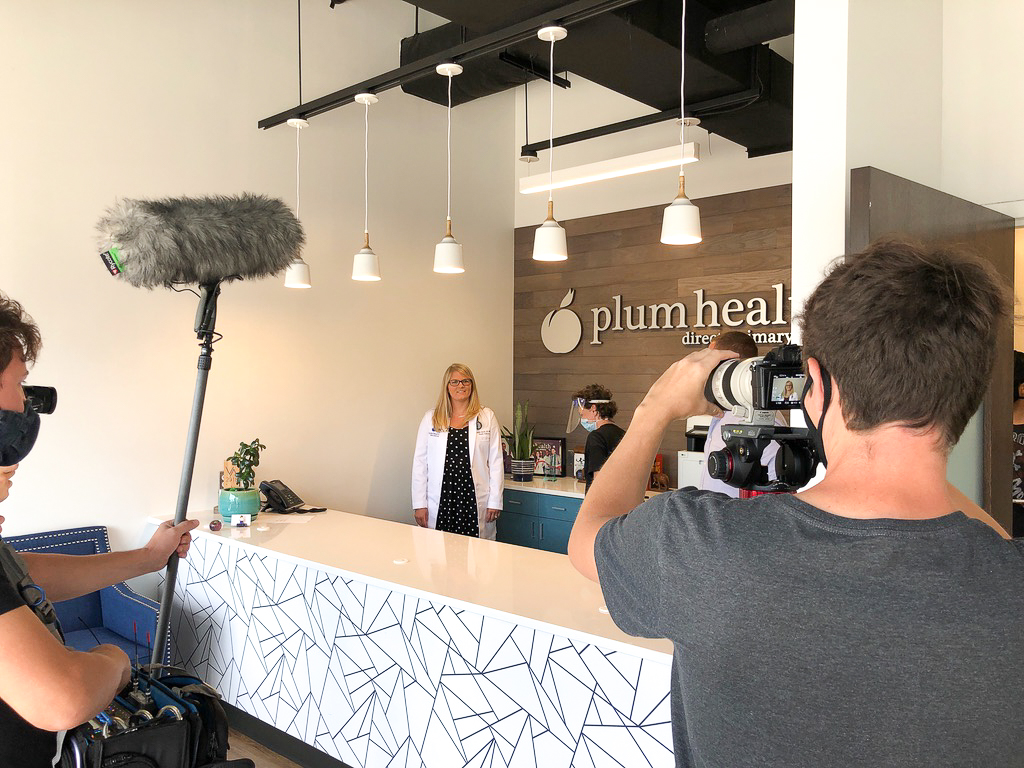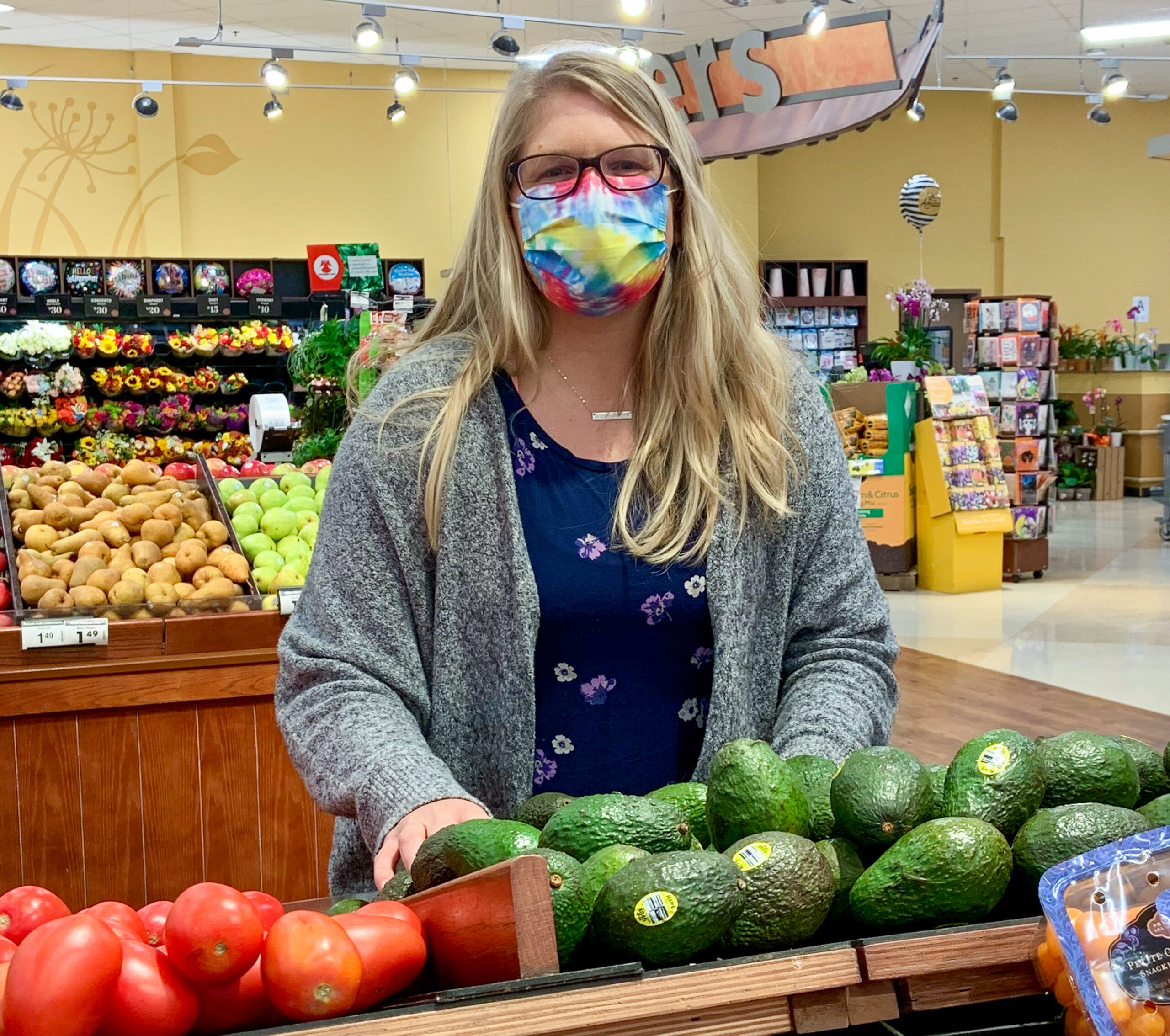bracIng for WInter: TIps to Help Get Through The Hard Months

Welcome back, VegMichigan friends! I can’t believe it’s November already and the holiday season is right around the corner! If you celebrate Halloween, I hope you and those you care about were able to find some safe and creative ways to enjoy the day.
I have some awesome news! Plum Health DPC, the family medicine practice I am part of, is going to be featured on a PBS show called Start Up on November 8th at 1:30pm! Check out the show and learn more about how we are working to increase access to personalized, affordable health care throughout Metro Detroit! We are so excited about this show!
In November, we also see the start of the cold, dark, long, wintery months. Ugh. All around us, our animal friends are instinctively busy preparing to endure the upcoming season. Deer, rabbits, and squirrels are finding food and hiding it for later. Bears and skunks are trying to gain weight before going into hibernation. Many animals are growing thicker fur right now to help keep them warm. Earthworms are digging themselves deeper into the soil, and other animals are digging burrows and preparing to huddle close together for warmth.
This poses an interesting question for humans: should we also be doing something to prepare ourselves for winter? I’ve been getting this question often from my patients at my office. If you’re like my dad, you prepare by packing your bags and heading South for the next several months! Unfortunately, a lot of us aren’t quite this lucky. Unless you are someone who thrives on cold weather and winter activities, I think many of us could benefit from some pre-winter preparation. So, for this month’s post, let’s talk about it!

Make Sure You’re runnIng on premIum fuel
One of the very best things we can do during to get us through the winter is maintain a healthy, plant-strong diet. We should be incorporating at least 5-7 servings of fresh fruits and vegetables daily, in a rainbow of colors, as well as adding some whole grain foods (if tolerated) and legumes.
Why is the “rainbow” concept so important? This is a very, very important point I want to make over and over in my blog posts. This is the reason why a plant-based diet is what I consider most optimal for health. The variety of colors found in plant foods are chemicals produced by the plant that have important, immune boosting, disease fighting, anti-oxidizing, cell repairing, mood lifting, energy producing, sleep improving functions throughout our bodies. Sounds pretty fantastic, doesn’t it? Especially during the winter months! Once fully digested, these foods literally break down into “helpers” that go around and aid our bodies in functioning most optimally. The more we consume, the more benefits we receive. Why wouldn’t we want to consistently fuel our bodies with foods that do these great things for us? This concept is especially important right now, when most everyone is so focused on staying healthy and boosting our immune systems. I have a lot of patients asking me for advice about supplements, vitamins, and other products out there that claim to boost immunity. While some supplements may offer some positive effects for immune health, I always recommend obtaining our nutrients directly from the source – plant foods. What we choose to eat every day is the most effective way to do this.
If you would like to learn more about how phytonutrients in our food impact our health, this is also an interesting and well-written site: Phytonutrients 101: A Crash Course in Plant Compounds

What about VItamIn d?
While we are on the topic of supplementation, let’s talk about Vitamin D. It’s an important nutrient for several different reasons. It maintains healthy teeth and a strong skeletal system. It helps our nervous system function normally. It is very important for the immune system as well, working to enhance our ability to fight off viruses and bacteria. As many of you may know, our bodies do a really good job making Vitamin D through our skin when it is exposed to the sunlight. In the winter months, we lose this luxury of having our bodies take care of it for us and we must rely on other sources to keep our Vitamin D levels up. For those who eat plant based, vegan, or plant-strong diets, we lack adequate Vitamin D in our diet because it is only naturally found in animal products and mushrooms (to a small degree). It is also fortified in some foods, like cereals and plant milks.
In my own practice, I’m finding that many people run somewhat low in Vitamin D, no matter what their diet is like. I do recommend taking a Vitamin D supplement, especially in the winter months, to help maintain optimal levels. The recommendations for Vitamin D supplementation are 600-800 IU daily. This is widely recommended in medicine as a sufficient dose for maintenance of levels. Sometimes higher doses are appropriate, based on individual situations. There are two versions of Vitamin D supplementation available, Vitamin D2 and D3. Both types are effective, however studies suggest that Vitamin D3 may be slightly more effective. Remember that both of these supplements often come from animal-based sources so if you are vegan you’ll want to choose a plant-based supplement. I would recommend discussing your Vitamin D level and an appropriate supplementation dose with your physician.
be Safe Out There
Personal safety and hygiene is another extremely important factor in keeping us all healthy during the winter. This season, as Covid-19 is unfortunately rising again and influenza and other upper respiratory viruses start to emerge, we should continue to be especially mindful of hygiene to help prevent the unnecessary transmission of germs. We are all ready to move forward from what we’ve experienced this year, and no longer need to wear a mask or be socially distant. However, as a physician who worked on a Covid unit at a hospital, we should continue to do our part in the community to help stop the spread of illness. Here are 5 things we can do to help:
1. Wash hands with antibacterial soap or use hand sanitizer, every chance you get.
2. Avoid touching public surfaces, your face, and your eyes as much as possible.
3. If you go into the public, please wear a mask over your nose and mouth.
4. Use antibacterial wipes to sanitize shared items such as computers, telephones, light switches, door handles, etc.
5. When in public, try to maintain a 6 foot distance from strangers as much as possible.

Make TIme to Take Care of Your body
Did you know that exercise is an immune booster? One of the biggest reasons why is that moderate physical activity gets our hearts pumping. Higher cardiac output causes an increase in whole-body circulation. Increased circulation means more of our immune cells, armed and ready to find and destroy foreign invaders, are mobilized and traveling throughout our bodies. Not only are we getting the physical benefits of exercise, but we are also helping optimize our immune function! It’s a win-win!
A lot of us seem to find it more difficult to take care of our physical health during the winter. I think it’s going to be especially difficult during this pandemic, when many of us are staying home and avoiding public places. But maintaining our physical health is just as important in the Winter months as it is in the Spring and Summer, and we must still find ways to incorporate self care into our routines. Here are a few suggestions for things you can do at home:
1. Yoga With Adrienne: On her YouTube Channel, Adrienne has hundreds of free, short yoga courses tailored to all sorts of life situations, stressors, aches and pains, etc. She even has a course specifically for battling the Winter blues! I have one patient who has been gathering with friends on Zoom to do online yoga classes together. I think this is such a great way to maintain social connectedness and promote accountability for regular physical activity!
2. If you have video games at home, try the ones that incorporate physical activity, like Just Dance, Wii Sports, Zumba Fitness, or Pokemon Go.
3. Check out Fitness Blender: This site has hundreds of free workout videos you can do from home. It offers a full range of difficulty levels and a nice mix of shorter and longer workouts.
4. Dress warmly and go outside: If you are able, try to get outdoors and enjoy nature in the winter months. It is so beautiful to walk around in a winter wonderland. There is something calming and peaceful about the quiet and the fresh air.
5. Work on a home-improvement project: No matter where you live, working on things at home is often a great form of physical activity. Most cleaning and reorganizing activities require motions such as lifting, squatting, pulling, twisting, bending down, and use of your core. These are all great strength training exercises that will increase your physical activity and make you feel good about the work you did!
There are some other important ways to take care of our physical health in the winter:
1. Drink plenty of fluids every day. This, combined with the additional water from eating fruits and vegetables, will help maintain moisture in our skin and prevent chapped lips from the dry, cold air.
2. Keep yourself warm. Our cardiovascular system works harder in colder temperatures.
3. Figure out what works best for you to keep stress levels down.
4. Get good sleep regularly, but not too much.
5. Create things you can look forward to, to help maintain a positive outlook throughout the winter.

We will get through this, my Veg-friends! Please continue to maintain a positive outlook, take care of your bodies, fill your bodies with the right foods, practice gratitude, and be kind to each other. We must be creative and intentional about finding safe ways to enjoy life and stay connected to our loved ones. We should also do the right thing as citizens to reduce the spread of germs and illness. No matter what November brings, I hope you will turn this upcoming season into a chance to do more of what you love and focus on who and what makes you happy. Stay warm and stay well, and I will catch you again next month! And don’t forget to VOTE!

The pic of the kitty and dog is adorable! (I read to the end!)
Good work as always Jamie!
Great stuff!